Zoloft Addiction And Abuse
- Antidepressant Addiction And Abuse
- Tianeptine Addiction And Abuse
- Antidepressant Abuse Symptoms And Warning Signs
- Antidepressant Withdrawal And Detox
- Antidepressant Treatment And Rehab
- Cymbalta Addiction And Abuse
- Flexeril Addiction And Abuse
- Elavil Addiction And Abuse
- Remeron Addiction And Abuse
- Trazodone Addiction And Abuse
What Is Zoloft?
Zoloft is one of the most popular Antidepressants in the United States. It is the brand name for Sertraline, a drug which alleviates the symptoms of depression, obsessive compulsive disorder (OCD), panic and anxiety disorders, post-traumatic stress disorder (PTSD), and premenstrual dysphoric disorder. Doctors sometimes prescribe Zoloft off-label to treat eating disorders and insomnia as well. Those taking the medication should do so according to their prescription or else risk developing Zoloft addiction.
Zoloft is a Selective Serotonin Reuptake Inhibitor (SSRI), a type of medication that stabilizes the amount of serotonin in the brain. Serotonin is a neurotransmitter which regulates and balances emotions, so many people who have low levels of serotonin suffer from depression and other mental disorders. SSRIs work by blocking the brain’s neurons from absorbing serotonin. As a result, more serotonin is available to facilitate connections between neurons; this can relieve disorders that arise from a shortage of the neurotransmitter. When a person has healthy levels of serotonin, they tend to experience better emotions, sleep more easily, and enjoy greater energy and interest in life.
Zoloft is a prescription drug that can exist in the form of a pill, tablet, or liquid. In most cases, a person who uses the medication properly will take it only once a day. Zoloft is generally safe, and research has proven that it can be an effective source of treatment. However, Zoloft also carries risks for misuse, dependence, withdrawal, and overdose.
Online Addiction Counseling
Get professional help from an online addiction and mental health counselor from BetterHelp.
- Access to Therapy 24/7
- Easy Online Scheduling
- 20,000+ Licensed Therapists
Paid Advertising. We may receive advertising fees if you follow links to the BetterHelp site.
Zoloft Dependence And Addiction
Since Zoloft is a long-term medication, there is no inherent danger in taking it for months or even years. However, since it’s a mind-altering drug, it can cause dependence. When a person becomes unable to feel normal or get through the day without taking Zoloft, they’ve become dependent on the medication. There is a debate about whether Zoloft is actually addictive because there is no evidence that people who take Zoloft ever have cravings for it. Nevertheless, people who stop taking Zoloft can experience withdrawal.
To avoid withdrawal, some people may continue to use Zoloft even though they believe they no longer need it. In some cases, they might “doctor shop” for more Zoloft prescriptions or buy the medication illegally, all to keep away withdrawal symptoms. This cycle of withdrawal and relapse is characteristic of an addiction disorder. Fortunately, addiction to any prescription drug can be cured with medically-supervised detox and therapy at a rehab facility.

Break free from addiction.
You have options. Talk about them with a treatment provider today.
Zoloft Addiction: The Symptoms Of Withdrawal
Zoloft withdrawal is a form of SSRI Discontinuation Syndrome. This condition will affect about 20% of people who use an SSRI. Since Zoloft has a short half-life (the length of time a drug stays in the bloodstream before it leaves the body), when someone decides to stop taking Zoloft its effects quickly wear off. That means if a person suddenly stops taking Zoloft, their serotonin levels will abruptly decline. That’s why health care professionals often wean their patients off the medication by gradually reducing the amount they take until they stop completely, a method sometimes called a “tapering strategy.”
The brain will adjust to post-Zoloft serotonin levels, but until it does the body may react adversely to lower amounts of serotonin in the nervous system. The symptoms of SSRI Discontinuation Syndrome usually last for one to three weeks. The severity of the withdrawal symptoms will vary depending on how long a person had been taking Zoloft. In many cases, people will experience rebound depression or anxiety when they stop taking the medication. The other possible symptoms of Zoloft withdrawal are:
- Chills
- Dizziness
- Fatigue
- Headaches
- Irritability
- Insomnia
- Lack of concentration
- Lightheadedness
- Nausea and vomiting
- Recurring nightmares and vivid dreams
- Suicidal thoughts
- Tingling sensations in the skin
- Vertigo
Check if my insurance covers rehab
Addiction Center is not affiliated with any insurance.
The Side Effects And Risks Of Zoloft
Like all medications, Zoloft may cause some side effects. The most common side effects of Zoloft are not long-lasting or life-threatening, but there are cases where the medication can cause more serious problems. The most common side effects of Zoloft include:
- Dizziness
- Drowsiness and fatigue
- Headache
- Indigestion
- Loss of appetite and libido
- Nausea and vomiting
- Nervousness and restlessness
- Stomach pain
- Sweating
- Tremors
The FDA has issued a black box warning for Zoloft. A black box warning is a notification about a dangerous potential effect of a prescription drug. According to the FDA, Zoloft can provoke or aggravate suicidal thoughts in children and young adults. For this reason, the FDA has not approved Zoloft to treat depression in children.
It is unusual for someone to suffer an allergic reaction to Zoloft, but if someone does have an allergic reaction to the medication it’s important that they receive medical attention. The symptoms of an allergic reaction to Zoloft are trouble breathing, swelling, and hives. Additionally, health care professionals recommend avoiding alcohol or illegal drugs while taking Zoloft. They also warn that pregnant women who take Zoloft risk giving birth to children with hypertension and neonatal withdrawal.
Looking for a place to start?
Join the thousands of people that have called a treatment provider for rehab information.
Free and confidential
Available 24/7
Access to professional treatment
The Symptoms Of An Overdose
It is possible to overdose on Zoloft. An overdose occurs when someone takes too much of the medication. Although many symptoms of a Zoloft overdose are uncomfortable, an overdose is not necessarily a life-threatening emergency. However, in severe cases, an overdose can cause organ damage and may even turn fatal. The milder and more common symptoms of an overdose include:
- Agitation
- Dizziness
- Fever
- Increased heart rate
- Nausea and vomiting
- Shaking and tremors
- Tiredness
When someone suffers a serious Zoloft overdose, they may faint or experience delirium and hallucinations. The overdose could also damage a person’s heart and pancreas. Furthermore, a Zoloft overdose can become serotonin syndrome. Serotonin syndrome is the body’s reaction to an excess of serotonin. The syndrome is rare, but when it does occur it usually begins within one day of taking too much of an SSRI. Serotonin syndrome is a medical emergency that causes fever, shivering, muscle tightness, confusion, and potentially lethal seizures.
Get Help Today For Zoloft Addiction
If you or someone you know has a problem with Zoloft dependence or addiction, today could be the day to start making a difference. Contact a treatment provider today to learn more about treatment options.
Published:
Author
Nathan Yerby

-
Nathan Yerby is a writer and researcher. He is a graduate of the University of Central Florida.
- More from Nathan Yerby
Reviewed by Certified Addiction Professional:
David Hampton

A survivor of addiction himself, David Hampton is a Certified Professional Recovery Coach (CPRC) and a member of the National Association of Alcohol and Drug Abuse Counselors (NAADAC).
- More from David Hampton
Sources


Recovery Starts Today
Call Now For Addiction Support
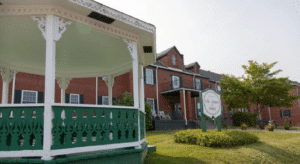

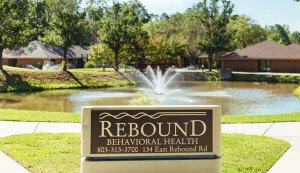
Rebound Behavioral Health Hospital
Lancaster , SC



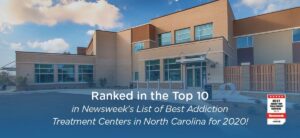
Wilmington Treatment Center
Wilmington , NC

Recovery Centers of America Capital Region
Waldorf , MD

Village Behavioral Health Treatment Center
Louisville , TN

Recovery Unplugged – Harrison House of Northern Virginia
Annandale , VA

New Hope Healthcare Institute
Knoxville , TN
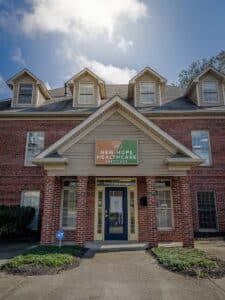
New Hope Healthcare – Teen Rehab
Knoxville , TN

Blue Ridge Mountain Recovery Center
Ball Ground , GA
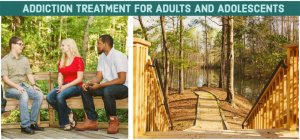

Georgetown Behavioral Hospital
Georgetown , OH

Newport Academy – Teen Rehab Center
Atlanta , GA